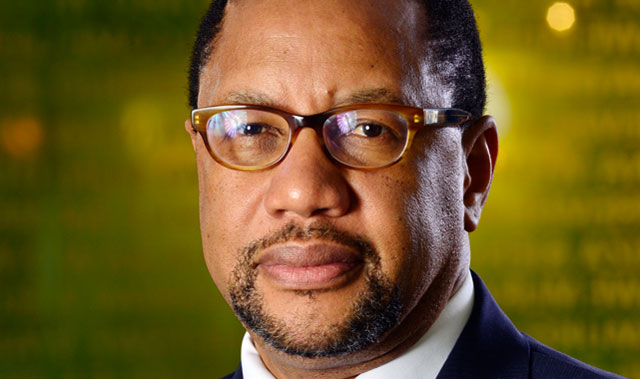
Outgoing MTN interim executive chairman Phuthuma Nhleko, whose last day as effective interim CEO is on Friday before his replacement, new group CEO Rob Shuter, starts work on Monday, has urged government to be cautious in its approach to spectrum policy, warning that the wrong approach could undermine investment and harm consumers.
Nhleko, speaking on the TechCentral Podcast, said he hopes there will be a “meeting of the minds” between the industry and the government before what’s proposed in the national integrated ICT policy white paper becomes legislation.
The white paper has controversially proposed the implementation of a national wholesale open-access network, or Woan, which will be given access to all unassigned high-demand spectrum — spectrum that is ideally suited for building wireless broadband networks. Under the policy, no existing networks will be given any further access to exclusive-use spectrum.
The proposal in the white paper has drawn sharp criticism from analysts and from the bigger operators, which have warned that it risks undermining a model that has resulted in enormous infrastructure investments since 1994. There is a real risk that if the policy isn’t changed that the big operators, including MTN and Vodacom, will challenge it in court, leading to years of delays.
In the podcast, Nhleko said a big problem for the sector in South Africa, and in many other markets around the world, is that “even though there is said to be engagement between the regulators and the operators, sometimes I do believe that we as the operators don’t convey the fundamental drivers as clearly as we should be conveying them”.
“If you are going to spend US$4bn/year in capex [as MTN does], you want absolute clarity about the regulatory environment — you want to feel that the rules are clear and that you can reasonably chart your own destiny within those rules and not have unforeseen extraneous factors”. More importantly, the rules need to allow operators to “continue to invest”, he said.
“To say a single company (the Woan) will distribute spectrum, it’s [again] all [about] those issues of certainty: how is it run, is it a fair apportionment depending on who can invest and make the returns? That, in turn, has an impact on how rapidly the ICT sector develops.
“Because it’s an ongoing discussion, and I’d hate to be seen to be debating it through the media, all I can say is we are engaging government, we want to create certainty, but in creating certainty, we want to ensure it’s equitable to the investment that we are putting in so we can continue making the investments.
“Whatever construct is arrived at in the final analysis, each operator needs to feel they can reasonably determine their own destiny. When I sit down with investors and say I’m going to invest another $4bn, or in the case of South Africa, R11bn, this is the sort of return we expect. We cannot be in a situation where we can’t answer such fundamental questions. So, I hope there will be a meeting of the minds.”
Nhleko said the issue needs to be resolved “sooner rather than later because we have had extended uncertainty on spectrum, which affects the capex we put in and affects the quality of service that the average person gets”. — (c) 2017 NewsCentral Media
- Listen to the full podcast




